Now a truly faithful adaptation of the manga or anime was never going to happen, the anime itself ran 37 episodes and is roughly 12 hours long, but the key to making an adaption work is in the capturing of the themes, characters and tone of the original and that is really where Netflix’s attempt fails. First off I will state that this movie is nowhere the train wreck that other North American adaptations of Japanese works have been; James Wong’s Dragonball: Evolution (2009) and M. Night Shyamalan The Last Airbender (2010) being prime examples of how far you can fuck something up, but Netflix’s Death Note still suffers from the same compression problems as characters are short shifted and entire plot lines are abandoned.
Let’s first look at the similarities; the basic concept and story of Death Note deals with a teen-age boy coming into possession of a notebook that he discovers allows him to kill anyone whose name is written within its pages and he soon launches a secret crusade to rid the world of criminals. The book was dropped into our world by death god Ryuk, and this mysterious being follows the actions of the teen with interest. Once the killings begin in earnest a task force is set-up to catch whoever is responsible and soon the teen himself is being hunted by the world’s greatest detective. And no I don’t mean Batman. And that’s about all the manga/anime have in common with the Netflix version, but just how far off base does the American version go? Let us first compare and contrast the key characters that make up Death Note.
Light Yagami
Light Yagami is a brilliant high school student who upon finding the Death Note begins to experiment with it until he comes to the conclusion that he can make the world a better place by ridding it of criminals and people he deems morally fit to live remain, and he would become the god of this new world. Light is a textbook sociopath with a heavy degree of narcissism, he manipulates and controls all those around him to serve his sole agenda. He takes on the persona of Kira (a name given to him by his followers) and ruthlessly kills thousands of criminals by giving them heat attacks, the default death the note book chooses if not otherwise specified, and then he would use “accidental deaths” to take out people that are a danger to him and his secret. He would kill them in this fashion so it would not tip off the authorities that Kira was responsible as the police and the populace only think Kira kills via heart attacks. Light is a genius level tactician, and one can almost admire him at times, but the series doesn’t once let us forget that he is evil and not some superhero that nobly wants to make a better world. “The ends justify the means” would basically sum up Light’s credo and he will kill anyone who stands in the way of his goal, whether they are on the side of the law or not.Light Turner
Light Turner (Nat Wolff) is an idiot, it's as simple as that, intellectually there is no comparison between the Light from the anime and the one found in the Netflix movie. Aside from a brief moment where we learn Light does other people’s homework for money we get no indication that he is of above average intelligence, and unlike the Light in the anime he himself seems very easily manipulated. It takes Ryuk taunting and pushing him to try the Death Note out which makes his decision to suddenly become a mass murdering serial killer harder to believe. The film adds a bit of backstory where his mom was killed by a mobster who got off scot-free (anime Light has living mother, father, and sister) but by the time we learn this he’s already killed a school bully and a hostage taker so all this does is muddy his motives. Easily the dumbest thing we see him do is reveal the notebook and its properties to a girl at school who he has a crush on. Light knows almost nothing about her when he reveals that he’s got a supernatural book that he has been using to murder people with and lucky for him she is totally into it, but I’m assuming most sane teenage girls would have screamed and called for the police. We also get this idiotic moment where he chooses the name Kira because it means light in Russian (this is not actually the case so the film’s writers join in on the stupidity here) and because it sounds like the Japanese word for killer the authorities will think Kira is Japanese. This level of stupidity on display here is staggering, and this makes his face-off against the world’s greatest detective completely unbelievable. Kind of like if Bullwinkle went up against Sherlock Holmes.Ryuk, the death god.
Ryuk is a bored Shinigami (death god) who lives in another realm and alleviates his boredom by dropping a “Death Note” into the human world to stir things up. Like the other Shinigami he is rather monstrous looking creature but one could not classify him as evil but more as an agent of chaos. He doesn’t so much as encourage the use of the notebook as he does just sit back and enjoy what wacky troubles humans will get into by its use. Ryuk follows the holder of the Death Note around much in the manner of a twisted invisible friend; he is neither for nor against the actions of the human. Ryuk could almost be classified as chaotic-neutral.Ryuk, the Netflix version.
Ryuk (Willem Dafoe) is a death god in the same vein that Freddy Krueger from A Nightmare on Elm Street is a god of nightmares, he immediately convinces Light to try it out the note book by having a school bully brutally decapitated.Note: The deaths in this film are very much in keeping with the Rube Goldberg type deaths found in the Final Destination series, with the same level of gore.
Unlike in the anime this version of Ryuk remains in the shadows and his appearances on screen are quite limited, only popping into a scene be snarky or manipulative for whatever the moment requires, and though Willem Dafoe is easily the best casting choice for this role the writers clearly wanted to make an iconic movie monster in the vein of Freddy or Pinhead from the Hellraiser films and that's not what this kind of story calls for. Sadly the result is that even though we get a cool looking and well acted villain it’s all surface and we get no motivations or backstory for him. In the anime we get to see how he interacts with his fellow Shinigami in his own realm, and how he dropped the book out of sheer boredom, while the Netflix version he remains a two dimensional monster and all the less interesting for it.
“L” aka Hideki Ryuga
When Interpol begins to focus on the killings attributed to the mysterious Kira they bring in “L” a world-famous detective who has never failed on a case, he is an introverted, eccentric and is basically the yin to Light’s yang, but visually one would almost expect the opposite; where Light is this tall golden boy, as one would expect a hero to be, “L” on the other hand is this crouched pale character that looks like he escaped from an of issue of Neil Gaiman’s Sandman. “L” is a genius and he is quickly able to deduce that Light Yagami is the notorious Kira, but only with a 5% certainty, and thus begins the cat and mouse game between these two that makes the anime so damn good. Both “L” and Light are so well written that you will find yourself rooting for both of them at times, Light is clearly evil and must be stopped but as a viewer you can’t help but admire how good he is at what he does, and the quirky and dizzying intellect of “L” is equally fun to behold."L" Netflix Version
For the Netflix version “L” (Lakeith Stanfield) is played slightly older than Light and though they toss in a couple of personal quirks from the anime version, like his crouched sitting posture and love of candy, the two versions are not very much alike. While the anime version of “L” is the flipside of Light’s genius the Netflix version has the problem of Light Turner being a grade level moron, so he's not exactly Professor Moriarty to L’s Sherlock Holmes. There is no cat and mouse game between these two as “L” practically just shows up in Seattle announcing he knows who Kira is. The movie barely gives time to really establish how he deduced this but like everything else it just rushes blindly on hoping the viewer won’t notice. The movie even insults us further by trying to justify L’s love of candy by having his mentor mention it increases his ability to think and work longer. Sorry, but that is not how sugar works. In the anime he liked candy simply because he liked candy, a part of his peculiar childlike persona. Netflix does not give us the battle of intellectual titans that we got in the anime but instead we are saddled with two tepid characters that are only a couple steps away from “We must get Moose and Squirrel.”Misa Amane
Misa Amane is a bubbly and energetic model/actress whose parent’s murderer was killed by Kira and so she had become a devout supporter of his cause, the added wrinkle here is that she is in possession of a second Death Note and along with the help her own Shinigami she is able to track down Kira and discover his true identity. She falls in love with Light on first sight but the relationship that develops between the two is clearly one sided, Light manipulates and uses Misa to further his own ends and to help outsmart those people hunting him. The closest analogous relationship here would be to that of The Joker and Harley Quinn, it is a dark and abusive with Light showing no empathy towards the girl who has devoted her life to him. She’s kind of like a cute puppy doing all it can to please its master only in this case this involves multiple murders. It’s no surprise that the character of Misa became one of the most popular among fans of the anime as she is just so damn fun to watch, she certainly isn’t the brightest crayon in the box but her motivations and heart remain true. Betrayal is not in her nature, which of course only adds to the tragedy of her character.Mia Sutton
Mia Sutton (Margaret Qualley) sadly doesn’t have much of character at all; she is a cross between Bella Swan from Twilight and Mallory Knox from Natural Born Killers and we never once get a peek into motivations or desires. Upon learning of the Death Note her reaction is basically “Cool, let’s go a murdering!” with no justification other than being an “angsty teen” and her supposed love for Light flips flops between actual heartfelt love to dark manipulated love that is more in keeping with the relationship in the amine between Light Yagami and Misa Amane only with the flipside here being it’s the girl manipulating the guy. This change could have worked, and would have been a nice twist to give fans of the anime, but sadly her character never remains consistent and so instead of being this dark mastermind she comes across as lame and uninteresting. You certainly won’t see anybody cosplaying Mia Sutton at any Comic Expos.Clearly doing a standalone movie was not going to easily compare to an anime series that ran 37 chapters but it’s the lack of believable characters and understanding of the source material that is the true stumbling block for the Netflix version. The premise of a teenager with supernatural killer notebook could easily fit into a half hour movie but for that to work motivations and behaviors have to make sense; at one point in the Netflix movie Mia Sutton is suggesting to Light that they murder his dad (who is part of the task force hunting Kira) right out of the blue as of this makes logical sense and would be something Light could agree on. Is she fucking insane? As far as she knows Light has a loving relationship with his father so murdering him would be a most definite no go, so why even bring it up? By this time she’d already secretly killed off the FBI agents brought into track down Kira (in the anime it is Light who orchestrates their deaths) so why not have Light’s father meet with an “accident” and thus keep her relationship with Light on an even keel? The movie is full of these nonsensical moments that are not helped by the filmmakers trying to keep Light sympathetic when he is clearly some kind of murdering vigilante whose only true motivation seems in getting laid by a cheerleader.
“I was bitten by a radioactive notebook.”
The film works so hard at keeping us on his side when what he is doing is clearly abhorrent, sure we can understand his desire to make the world a better place but then again that’s what Hitler thought he was doing. The writers shifting the killing of the FBI agents to Mia is a clear attempt to keep Light morally excused from his crimes. Yet he seems to have no problem in deciding to kill “L” so his code of “Killing only bad people” is apparently not so much a rule as it is a soft guideline. This makes Light a wishy-washy putz and thus fairly unlikable, and then we also have his face-off with “L” where he pretty much blubberingly confesses to being Kira after about ten seconds of questioning.“I also killed JFK and orchestrated the 9/11 attacks.”
The Netflix version of “L” isn’t much better with him failing to display any real detective skills and when his mentor/friend goes missing he completely flips out showing him to be emotionally out of control unlike his anime counterpart. It's the death of the mentor that also leads the film into it's generic action/chase sequence that has no real business being in this movie, its inclusion is very much a product of the cookie-cutter mentality of many American movies, worse for the fact that this version of Death Note isn’t even sure what kind of movie it’s trying to be. Is this a Young/Adult dark comedy in the vein of Heathers or is it a mystery thriller in the mode of David Fincher’s Se7en? That the movie had three screenwriter is not surprising, one of them have written the dreadful Fant4stic should have been a good enough warning, but director Adam Wingard has given us such excellent films as You’re Next and The Guest so I went in expecting more.I should state that I watched the Netflix movie before checking out the anime series and even without the comparison I found the movie to be a muddled mess that seemed to be rushing the “plot” forward at a fever pace while sacrificing character development along the way. Being this was made for Netflix I don’t understand why they didn’t just make it into an eight episode mini-series as that would have at least solved many of the movie's problems.
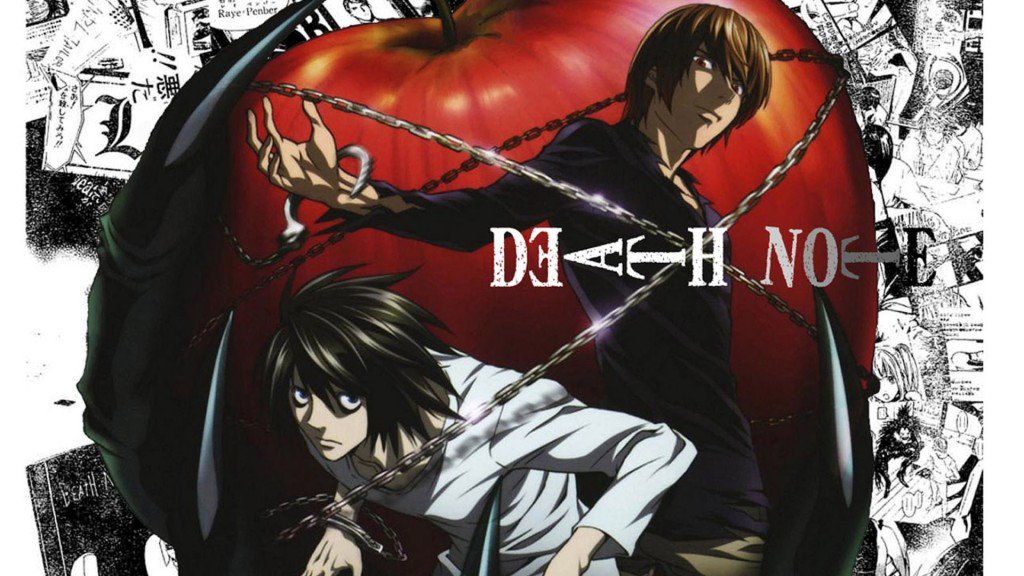


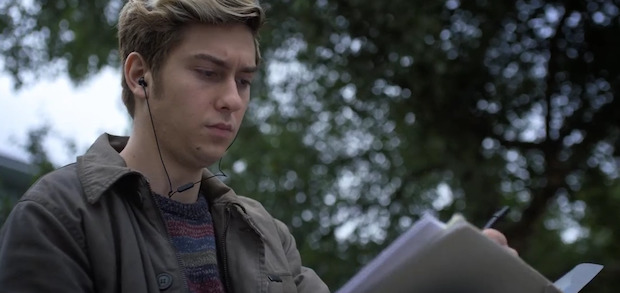
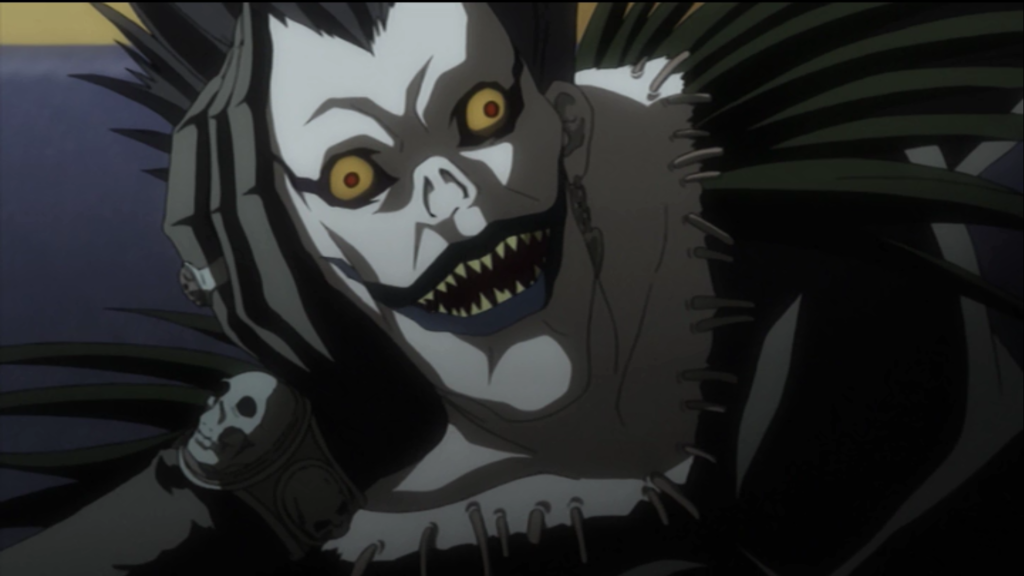
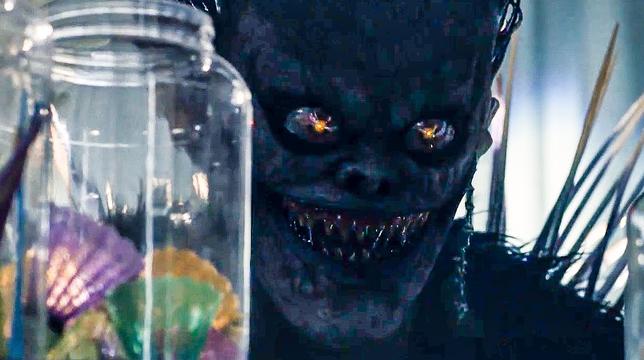
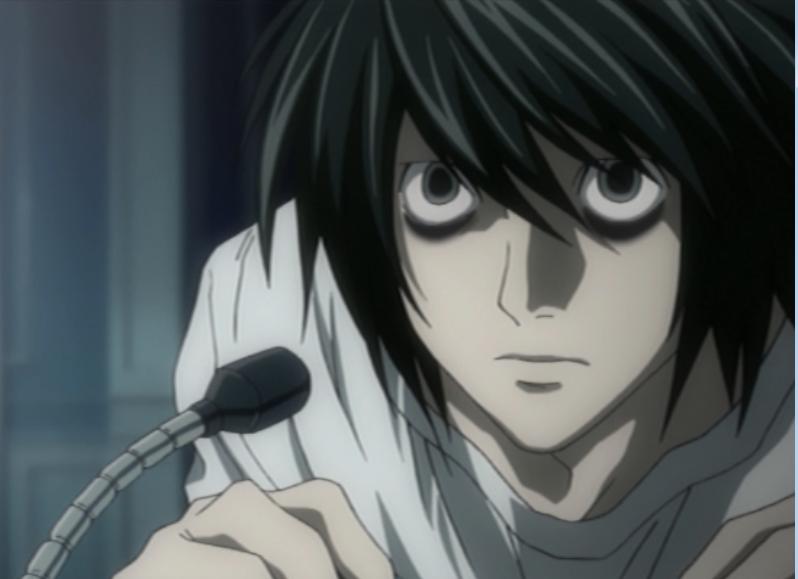
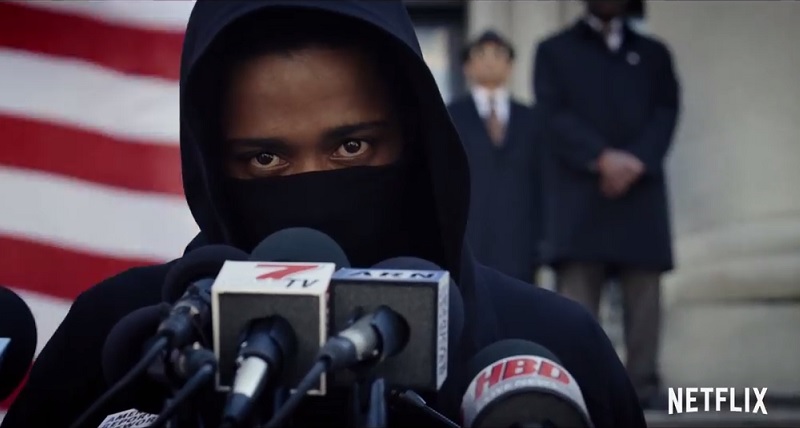
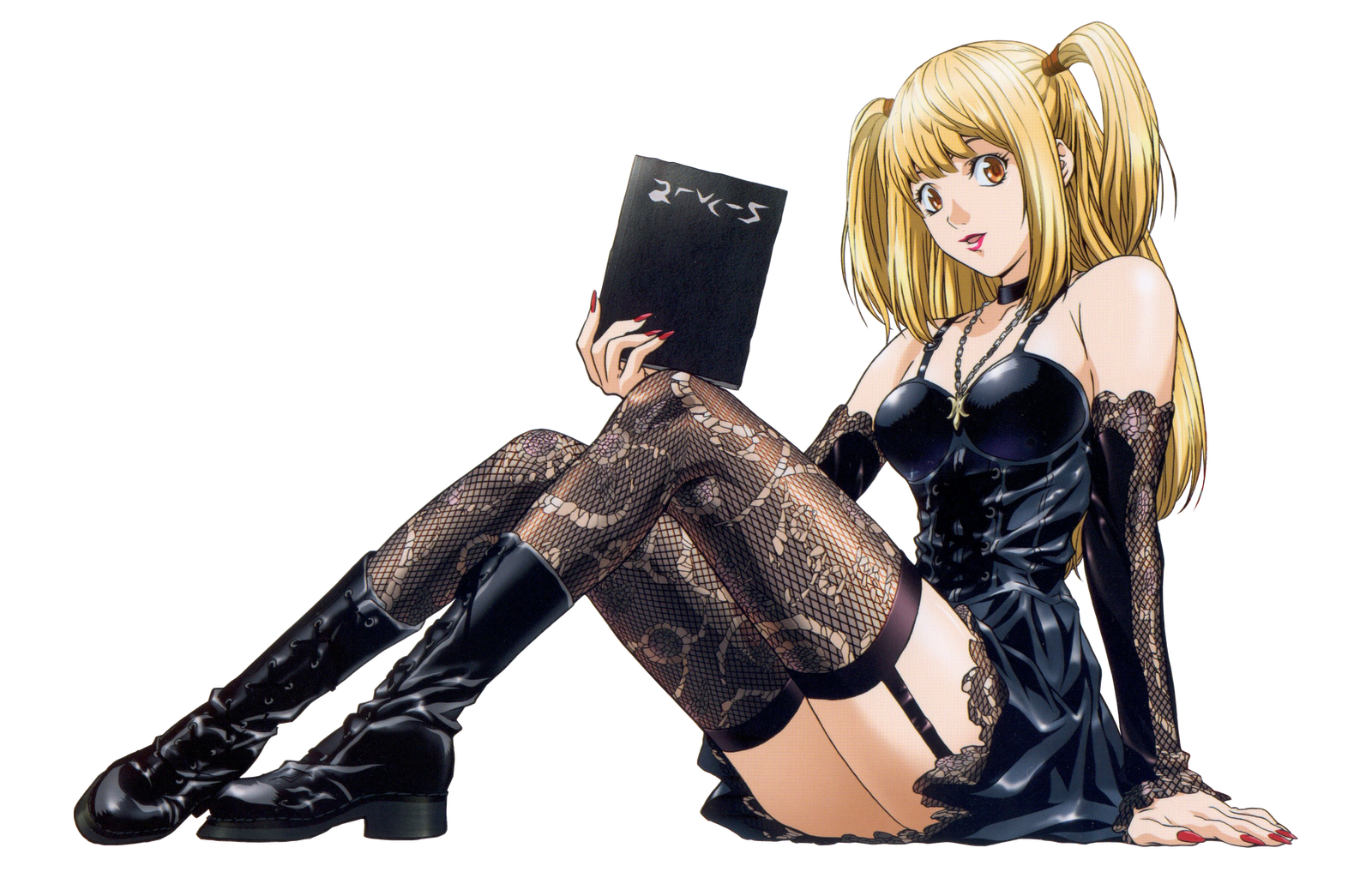




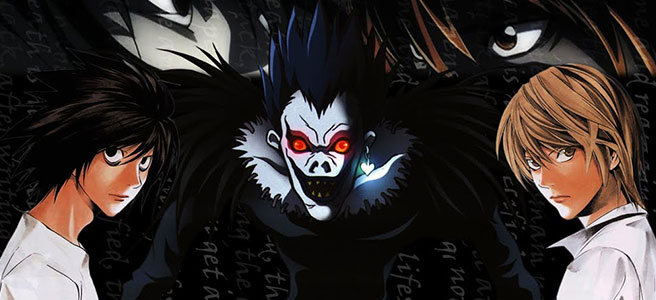

No comments:
Post a Comment